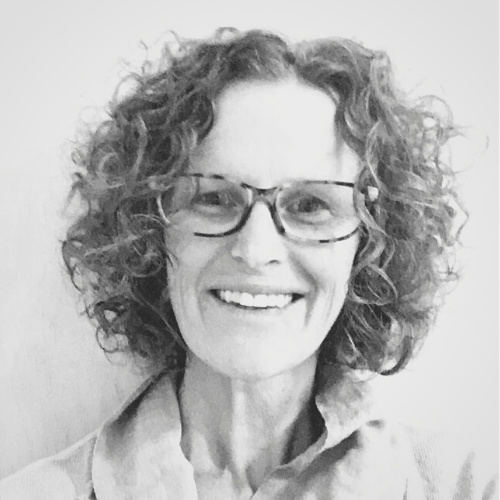God's Great Covenant: New Testament 2
Required Materials:
Books and supplies are not included in the purchase of the course.
-
God's Great Covenant: New Testament 2
- ISBN: 978-1600512568
- "The World of the First Christians: A Curious Kid's Guide to the Early Church" by Marc Olson
- A Journal and/or binder (instructor will provide recommendations)

Elizabeth Kaufman
[email protected]Elizabeth Kaufman holds a M.Ed. and earned her BA in Spanish from Hope College with minors in Music (piano performance) and Elementary Ed.. A missional mindset led her to work in various countries, teaching art and music in an American School in the Dominican Republic, grades 2 and 3 in a British school in Tanzania, and Spanish at a Montessori school in Michigan. Elizabeth went on to choose motherhood and homeschooling as a full-time pursuit and has loved teaching her four sons at home for the past eight years. Throughout this time, she has grown increasingly committed to Classical Christian education and has developed a love for “living” literature and biblical scholarship. She has also combined her love of music and scripture to compose several collections of songs for students and families to learn scripture together and to sing through liturgical seasons. She believes that every course of study is an invitation to witness God’s redemptive work in the world, to be formed and transformed by it, and to engage with Him in it.
Elizabeth lives in Kenya where her husband teaches biblically-based church discipleship and her sons enjoy living and learning “in the bush.” When not teaching or studying classical ed, you can find Elizabeth trail running, composing new music, doing laundry, hosting meals for friends and travelers, or attempting (poorly) to ride motorbikes with her boys. You can listen to her music for learning scripture at www.musictomemorize.org.
Quarter 1
BIBLICAL FOCUS: Where and When in the world did the Church begin?
- Become familiar with the geo-political situation of the early church.
- Describe how the social / political structures of the time influenced how people behaved in the first century CE.
- Consider how people today are influenced by social, political, & cultural features.
**SCHOLARSHIP SKILLS: ** - Cross-referencing the Bible and other historical texts
- Annotating texts
- Forming and responding thoroughly to intriguing questions
- Using scripture in dialogue
- Recording "Who, What, Where, When, Why, How" details with accuracy
- Practicing elocution
- Map work for geographical context
- Illustrating to demonstrate understanding
Quarter 2
BIBLICAL FOCUS: Who guides the mission of the church, then and now?
- Describe the role of the Holy Spirit as instructive and empowering.
- Define “gentiles."
- Explain the significance of the extension of the gospel to the gentiles.
- Examine who accepted and who rejected Christ as Messiah
- Describe how trying circumstances (i.e. persecution, martyrdom) caused the gospel to spread and gain momentum.
- Identify the significance of key characters, namely Saul (Paul), Stephen, Phillip, Peter and John.
- Investigate the major shift of Saul from persecutor to apostle.
- Explain and/or illustrate the transformative work of the Holy Spirit as evidenced individual characters.
**SCHOLARSHIP SKILLS: ** - Referencing OT scripture to form NT perspective
- Map work for geographical context
- Compare and contrast the message of Christ to other beliefs
- Application of OT prophecies to NT realities
- Retelling with accuracy and imagination
- Creating art to communicate ideas
Quarter 3
BIBLICAL FOCUS: What directs growth and governs growing pains?
- Trace & map the journeys of Paul.
- Define the conflicts which shaped both Paul and the early church.
- Examine how all conflict is an opportunity when handled in accordance with God’s word and God’s way.
- Explain how the tests of conflicts can lead to much growth
**SCHOLARSHIP FOCUS: ** - Annotating texts
- Asking and answering intriguing questions
- Using scripture in dialogue
- Recording "Who, What, Where, When, Why, How" details with accuracy
- Practicing elocution
- Reflective writing
- Personal reflection and devotional application
Quarter 4
** BIBLICAL FOCUS**:** How do we live faithfully IN the world, but not OF it?**
- Describe how Paul leads the church in resolving conflict.
- Explain how conflicts demonstrate the need for a unified understanding of the Christian faith.
- Investigate how Paul applies his own training in scholarship to organize and explain the basic truths of the Christian faith.
- Describe how God’s omniscience, omnipresence and omnipotence are displayed in the life of Paul.
- Consider how God’s covenant has remained the same and yet expanded over time.
**SCHOLARSHIP SKILLS: ** - Annotating texts
- Asking and answering intriguing questions
- Map work
- Role-playing in historical context
- Grade-level writing skills
- Organizing information
- Timeline work
- Drawing conclusions by citing evidence
- Defending ideas in writing and speaking
![]() Computer: You will
need a stable, reliable computer, running with a processor with a speed of 1 GHz or better
on one of the following operating systems: Mac OS X with Mac OS 10.7 or later; Windows 8,
7, Vista (with SP1 or later), or XP (with SP3 or later). We do not recommend using an
iPad or other tablet for joining classes. An inexpensive laptop or netbook would be much
better solutions, as they enable you to plug an Ethernet cable directly into your computer.
Please note that Chromebooks are allowed but not preferred, as they do not support certain
features of the Zoom video conference software such as breakout sessions and annotation,
which may be used by our teachers for class activities.
Computer: You will
need a stable, reliable computer, running with a processor with a speed of 1 GHz or better
on one of the following operating systems: Mac OS X with Mac OS 10.7 or later; Windows 8,
7, Vista (with SP1 or later), or XP (with SP3 or later). We do not recommend using an
iPad or other tablet for joining classes. An inexpensive laptop or netbook would be much
better solutions, as they enable you to plug an Ethernet cable directly into your computer.
Please note that Chromebooks are allowed but not preferred, as they do not support certain
features of the Zoom video conference software such as breakout sessions and annotation,
which may be used by our teachers for class activities.
![]() High-Speed Internet Connection:
You will also need access to high-speed Internet, preferably accessible via Ethernet
cable right into your computer. Using Wi-Fi may work, but will not guarantee you the optimal
use of your bandwidth. The faster your Internet, the better. We recommend using a connection
with a download/upload speed of 5/1 Mbps or better. You can test your Internet connection here.
High-Speed Internet Connection:
You will also need access to high-speed Internet, preferably accessible via Ethernet
cable right into your computer. Using Wi-Fi may work, but will not guarantee you the optimal
use of your bandwidth. The faster your Internet, the better. We recommend using a connection
with a download/upload speed of 5/1 Mbps or better. You can test your Internet connection here.
![]() Webcam: You may
use an external webcam or one that is built in to the computer. Webcam Recommendations:
Good (PC only) | Best (Mac and PC)
Webcam: You may
use an external webcam or one that is built in to the computer. Webcam Recommendations:
Good (PC only) | Best (Mac and PC)
![]() Headset: We recommend
using a headset rather than a built-in microphone and speakers. Using a headset reduces the
level of background noise heard by the entire class. Headset Recommendations: USB | 3.5mm
Headset: We recommend
using a headset rather than a built-in microphone and speakers. Using a headset reduces the
level of background noise heard by the entire class. Headset Recommendations: USB | 3.5mm
![]() Zoom: We use a web
conferencing software called Zoom for our classes, which enables students and teachers to
gather from around the globe face to face in real time. Zoom is free to download and easy
to use.
Zoom: We use a web
conferencing software called Zoom for our classes, which enables students and teachers to
gather from around the globe face to face in real time. Zoom is free to download and easy
to use.  To
download Zoom:
To
download Zoom:
- Visit zoom.us/download.
- Click to download the first option listed, Zoom Client for Meetings.
- Open and run the installer on your computer.
- In August, students will be provided with instructions and a link for joining their particular class.
![]() Scanner: In this
class, students frequently submit homework assignments by scanning pages from their workbooks.
Students and/or their parents should have easy access to a scanner and the ability to use it.
Scanner: In this
class, students frequently submit homework assignments by scanning pages from their workbooks.
Students and/or their parents should have easy access to a scanner and the ability to use it.
Step 1
Step 2
Step 3
Step 4
Explore our courses!
First, read the available course descriptions, noting prerequisites, target grades, and course objectives. If you think your student is prepared for the course, go ahead and register. After registration, a placement assessment may be provided to students, depending on the course and the student’s previous enrollment with Scholé Academy. Registration is finalized when the student’s placement assessment has been returned by the course instructor with placement confirmation.
All Courses | By Grade
Read the Student-Parent Handbook.
Please take careful note of our teaching philosophy, our technology requirements, our school policies, the parent agreement, and the distinctions between our grade levels.
Double-check the course section dates and times.
Make sure they don't conflict with other activities in your schedule or other courses you are purchasing. Our system will not catch double-bookings!
You're ready to add course selections to your cart!
Our Assistant to the Principal will be in touch with you after your enrollment to help you with next steps, including any placement evaluations that may be required for your course selections.
This registration will be finalized when the student's placement assessment has been returned by the course instructor with placement confirmation.
